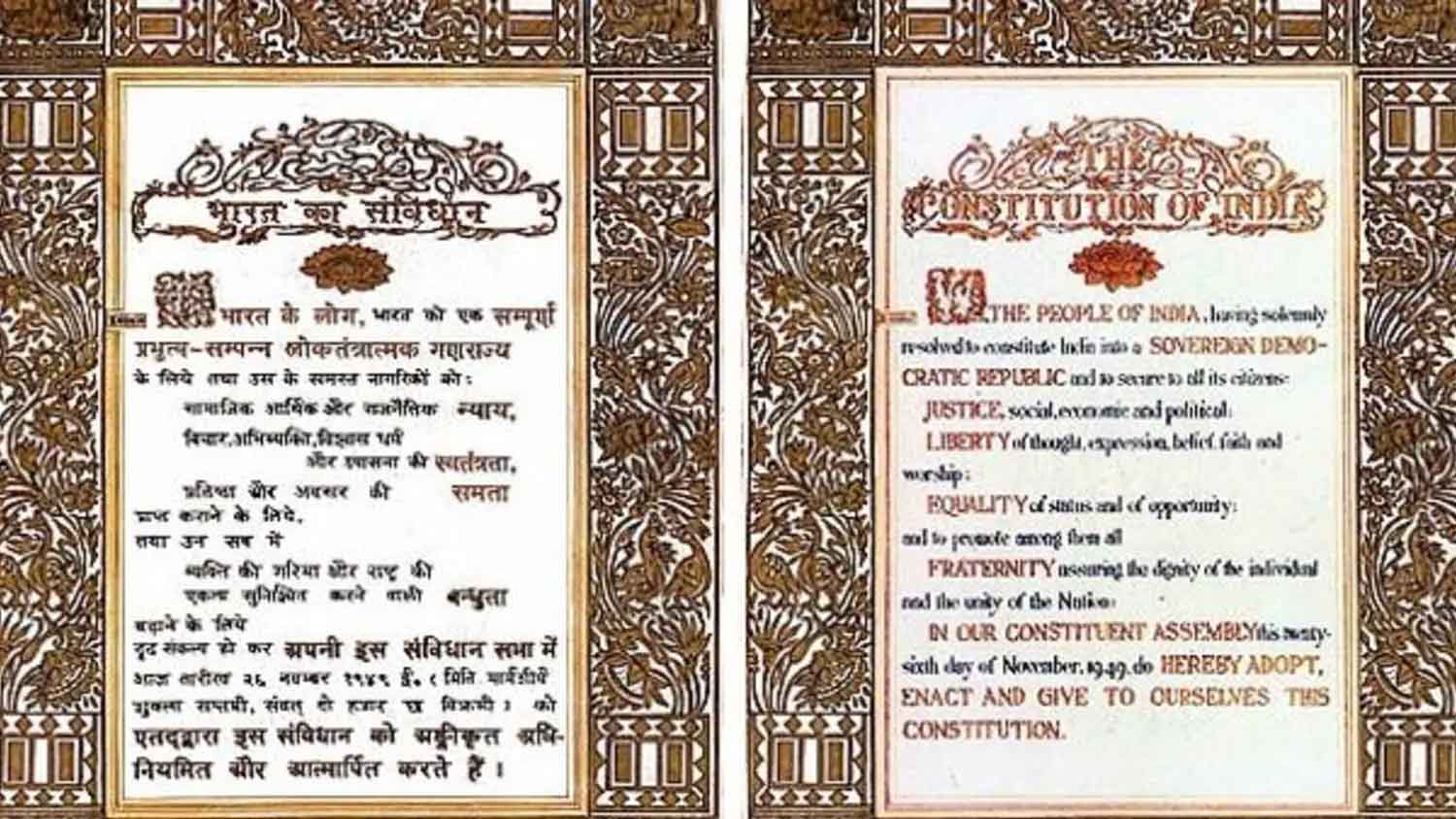The word “secular” in the Preamble of the Constitution of India represents one of the fundamental principles that underpin the Indian state’s character. The addition of the word “secular” was a significant moment in the history of Indian constitutionalism, reflecting the nation’s commitment to religious neutrality and the equal treatment of all faiths. In this article, we delve into the historical context and the events that led to the inclusion of the term “secular” in the Preamble of the Indian Constitution.
Historical Background
To understand the significance of adding the word “secular” to the Preamble, we must first explore the historical context in which India’s Constitution was drafted.
- Independence and Constituent Assembly: India gained independence from British colonial rule on August 15, 1947. Subsequently, the Constituent Assembly of India was formed to draft a new constitution for the newly liberated nation. Dr. B.R. Ambedkar chaired the drafting committee, which played a central role in shaping the constitution.
- A Diverse Nation: India is a land of incredible religious and cultural diversity, home to various religions, including Hinduism, Islam, Christianity, Sikhism, Buddhism, and Jainism, among others. The framers of the Constitution recognized the importance of preserving this diversity while ensuring that the state remained neutral in matters of religion.
The Preamble Before Amendment
The original Preamble of the Indian Constitution, as adopted on January 26, 1950, read as follows:
“We, the people of India, having solemnly resolved to constitute India into a Sovereign Democratic Republic and to secure to all its citizens:
- Justice, social, economic, and political;
- Liberty of thought, expression, belief, faith, and worship;
- Equality of status and of opportunity;
- And to promote among them all
Fraternity assuring the dignity of the individual and the unity of the nation.”
It is important to note that the word “secular” was not explicitly included in the original Preamble. The Preamble, however, did implicitly reflect the principle of secularism through its commitment to liberty of thought, belief, faith, and worship and the promotion of fraternity among citizens.
The Amendment Process
The term “secular” was introduced to the Preamble through the 42nd Amendment Act of 1976. This amendment, enacted during the tenure of Prime Minister Indira Gandhi, brought significant changes to the Constitution. The inclusion of “secular” was a response to the prevailing political climate and aimed to emphasize India’s commitment to secularism as a core constitutional value.
The 42nd Amendment Act also made several other changes to the Constitution, including the insertion of the words “Socialist” and “Integrity” in the Preamble and modifications to fundamental rights and the directive principles of state policy.
Significance and Impact
- Secularism as a Fundamental Principle: The addition of the word “secular” to the Preamble reinforced the idea that India is a secular state, where the government remains equidistant from all religions. This reaffirmed the state’s commitment to religious neutrality and the protection of religious minorities.
- Legal Interpretation: The term “secular” in the Preamble has been cited in numerous court cases to emphasize the importance of religious tolerance and non-interference in religious matters.
- Political Debates: The concept of secularism in India has been a subject of intense political debate and discussion, with different political parties interpreting it in various ways.
Conclusion
The addition of the term “secular” to the Preamble of the Constitution of India in 1976 was a pivotal moment in the nation’s constitutional history. It reaffirmed India’s commitment to religious neutrality and the protection of religious diversity. While the amendment was made during a period of political upheaval, the word “secular” continues to be a cornerstone of the Indian state’s identity and values, reflecting its enduring dedication to religious pluralism and individual freedoms. The inclusion of “secular” in the Preamble serves as a reminder of India’s secular heritage and its ongoing commitment to preserving the principles of equality and justice for all citizens, regardless of their religious beliefs.

